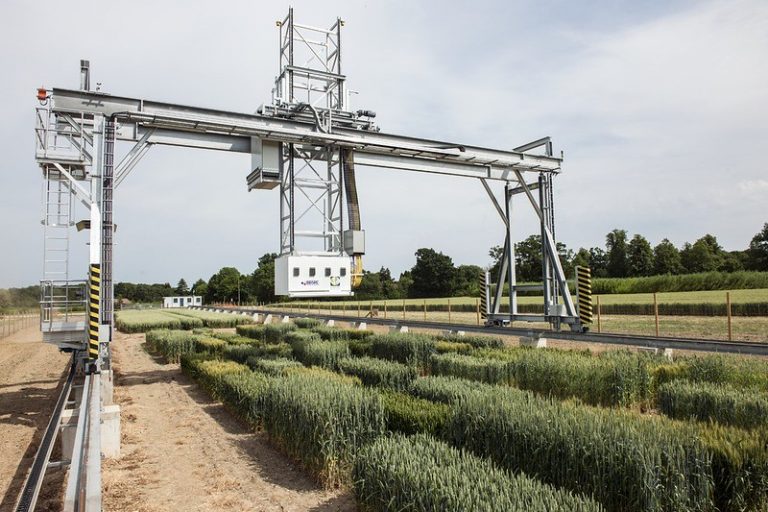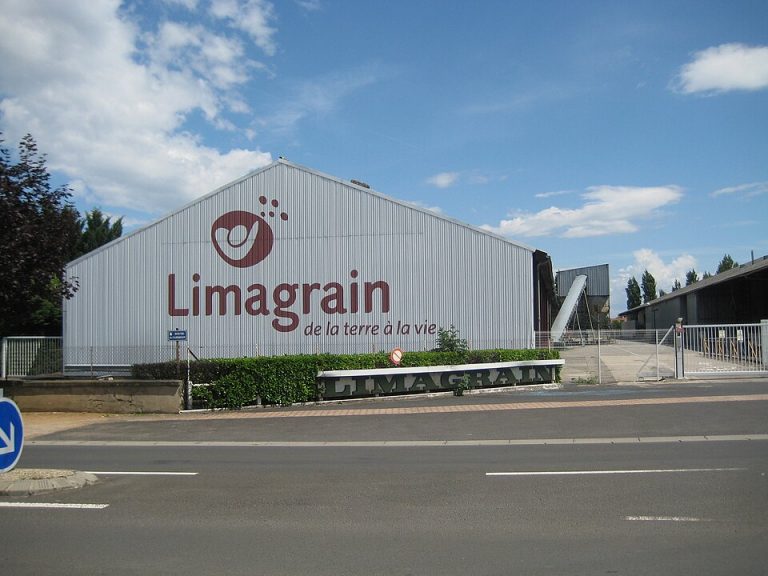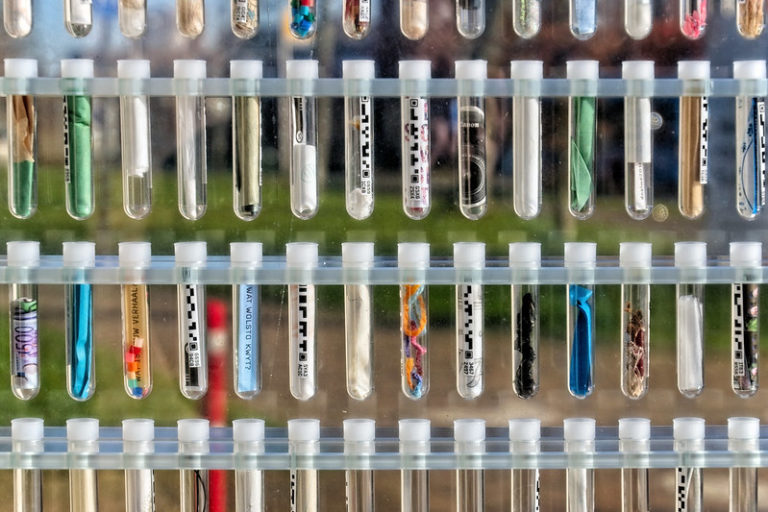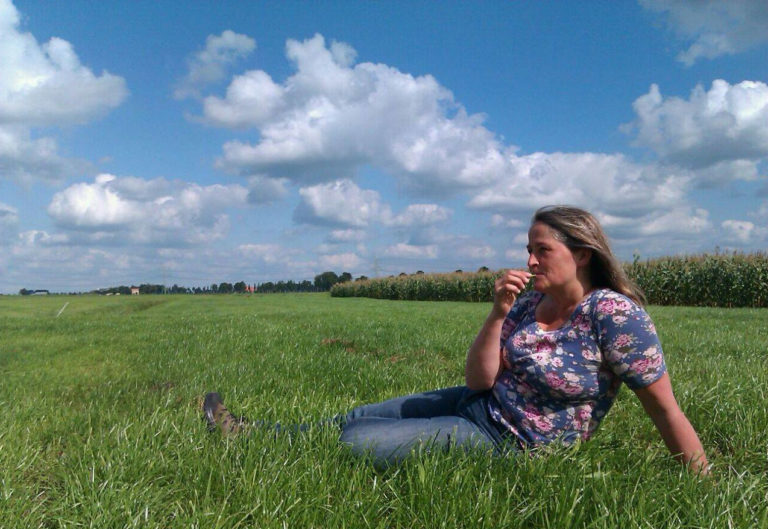Citizens vs growing number of new techniques of biotechnology
GMOs have been under discussion in Europe since the end of the 1990s. The subject has mobilised a broad spectrum of civil society. But the GMO acronym generally refers only to transgenic organisms, whereas over the last 15 years the biotech companies have developed “new techniques” for modifying living organisms. These developments have been – and are still – covert , even though companies might be close to reaching their Holy Grail, the right to modify plants’ genomes (as a first step) without falling under the constraints of the legislation that applies to GMOs and while being allowed to hold the corresponding patents. In this discussion, citizens’ and governments’ right to freedom of speech and political decision is restricted, as being socially and legally limited to purely scientific considerations.
November 2013 : Pioneer announced its collaboration with Precision BioSciences aiming at modifying male maize plants with meganuclease in order to make them sterile [1]. Pioneer, as Syngenta, Monsanto, Bayer CropSciences, also signed a licence agreement with Two Blades Foundation on TALENs protein to use them to cut plant’s genome in a precise location [2]. In France, in july 2013, Euralis Semences signed a licence agreement with BASF to develop Clearfield sunflowers, resisting herbicides [3]. Those examples are given to illustrate that transgenesis has become obsolete considering the techniques developed by laboratories and industries are developing.
A highly confidential discussion
Since late 2008, the European Union has questioned whether the “new biotech techniques” applied to plants and/or micro-organisms give rise or not to organisms that fall under the European legislation on GMOs (Directive 2002/18, regulation 1829/2003, etc.). It was not until January 2012 that it was possible to access what is still the only existing official information provided by a decision-making body, the opinion expressed by a European group of experts mandated by the European Commission, to respond to the question that has been posed as to the status of seven techniques : oligonucleotide-directed mutagenesis, cisgenesis, zinc finger nucleases, reverse breeding, agro-infiltration, grafting, DNA methylation [4] (paper in french). C.f. also [5] ]]. Eric Poudelet, of the European Commission told Inf’OGM in May 2012 that “This is a difficult subject that the Commission finds worrying, and on which scientists do not always agree […] it is up to the States to take decisions” [6]. It was announced that discussions would be held during the summer of 2012, but in late 2013, the European Commission informed Inf’OGM that they were still in the process of analysing this “in order to establish whether the new techniques mentioned by the working group fall under the definition of GMOs as per article 2 of the 2001/18/EC Directive or not”. So can we expect a reply sometime soon or not ? It is impossible to say, as “It is impossible to provide a precise time-line or indicate the details of the publication of the Commission’s work on this subject”. Nor is it possible to know how or by whom this analysis is being carried out within the European Commission…
In 2010, the Institute for Prospective Technological Studies (IPTS), a public body under the authority of the European Commission, organised a workshop on these new techniques with the European Commission, the OECD, national research and administrative institutes, companies and associations. These associations represented companies rather than civil society : Copa-Cogeca, EuropaBio, the German association of seed merchants and the French Union of Seed merchants. Although a report was published in 2011 by the IPTS [7], essentially based on this workshop, no formal report was made public, as “There is no report”, according to the IPTS. It is difficult to understand this lack of transparency, given the social stakes that biotechnology implies.
The increasing lobby of private enterprise
Should the plants produced by these techniques fail to be covered by legislation pertaining to GMOs, this would imply no risk assessment prior to granting authorisation, no labelling of food products containing such plants or derived from them and no post-market environmental monitoring on the plants. These obligations are not welcomed by companies, as they imply costs, impose a time-frame, in brief, they disrupt the commercialisation of their patented products. Since January 2012 and the official publication of the report by the group of experts, the biotech lobby has increased its pressure in a more or less direct manner : scientific articles, position papers by bodies that represent the companies, scientific academic positions…
Be it the European technology platform “Plants for the future” [8], or the European Seed Association (ESA) [9], the message sent to the European Commission is that it should supply companies with a solid legal framework to guarantee “their investments in innovative techniques will not be in vain and that their future products will not be subject to the uncertain outcome of politicised regulatory procedures” according to the ESA, as they are afraid of an “expensive and lengthy authorisation procedures similar to that of genetically modified organisms”. The arguments that are put forward are similar to those used for transgenesis : need to guarantee world food security, overcome the impacts of climate change on agriculture, guarantee jobs in Europe. In July 2013, the European Academies Science Advisory Council took up these arguments and requested that the European Commission declare that modified products which do not contain inserted DNA do not fall under the GMO legislation, and that the final decision is taken only by taking into account the final product, rather than the technique used. This option is the opposite of the current European position that does take the technique of modification into account. But it might become a serious one as the Commission of Agriculture of the European Parliament hdecided on january the 21st to claim this approach. Its resolution on plant breeding is based on industries arguments and underlines that “with today’s technique-based plant-breeding legislation, […] it has also proven to be difficult, after the event, to define what technique has been used at the time of plant-breeding, which confirms the difficulties posed by technique-based laws” [10].
Key questions : patents, democratic choice
The issue of patents on plants that have been technically modified is not on the list of arguments carried, directly or not, by the industry. Companies do not wish to see most of these techniques considered as producing GMOs, and wish to see them excluded from the legal framework. The request by the European Academies Science Advisory Council to only consider the final product, and not the technique that has been used, appears in contradiction with the industrial property rights that are being claimed on these same products. For if a final product were to be classified as GMO or non-GMO without taking the technique used to produce it into consideration, (meaning only considering ‘can nature also produce such organisms ?’), industrial property rights (that are based on the concept of innovation and novelty) would still be claimed on the grounds of patents on the techniques, and hold by companies. Yet in the agricultural domain, and most especially in the area of seeds, the question of industrial property is important, for it leads to the privatisation of the first link in production, that of seeds. The most recent moves in this case demonstrate that the work in progress aims to criminalise peasant farmers’ activities even further (c.f. the analyses of Semences Paysannes network), leading to mobilisation by farmers’ unions and citizens. The new techniques enable these evolutions to take place, because they provide the companies with the tool they needed to defend what they consider to be their rights : to forbid peasants from working with seeds that industrial seed merchants wish to claim as covered by industrial property rights via patents on the genes or the techniques.
Biotechnology undermines our ability to make genuinely democratic choices. It is not possible for society to follow the discussion technique by technique, as organised according to the companies’ agenda, and on the sole basis of technical and scientific criteria. The positions held by companies or the European Academies Science Advisory Council are a perfect illustration of this : the final legislative decision on whether these techniques should have the status of GMOs or not will be taken on scientific considerations alone. The WTO (World Trade Organisation) is imposing this kind of approach, and is considering all national decisions illegal should they fail to be grounded on scientific justification (c.f. the case by the WTO against national moratoriums). We also need to bear in mind that the bilateral treaty that is currently under negotiation between the United States and the European Union could provide companies with the right to claim damages if the European market were closed to their products or professional activities ; this is similar to the existing treaty between Canada and the USA [11]. This all-scientific constraint deprives governments and citizens of their right to express their opinions. For not all citizens are scientists. They are not all able to analyse 900 pages of toxicology results. But they do all have the right to an opinion based not merely on scientific considerations, but also on ethics, cultural, social and / or economic considerations that are equally legitimate in building political opinion, and they are all entitled to have their opinions taken into account by political bodies, without being rejected by these bodies on the grounds that their opinions are not scientific. This is all the more true, as this “scientific truth” is not always shared by the competent experts… The techno-scientific framework that is being imposed is therefore leading to choices being made that are not those of society in all its diversity, but rather those imposed by companies knocking on the law-making body’s door.
The list of the seven techniques studied by the European group of experts between 2008 and 2012 is no longer exhaustive. These companies have since developed other techniques : meganucleases, Talens, early flowering and the new technique of Pioneer seed production… This longer list has led the European Commission to hope that their current analysis will lead to conclusions that could “also serve as a reference for other techniques that might emerge in the future” [12]. It is not just the citizens who have been left standing by the roadside, as the governments of several countries have or indeed are currently undertaking similar studies to those of the European Union, but without analysing all the techniques [13]. These different analyses will lead to different legislation being introduced, and therefore to recurrent complaints from the companies, which would prefer to have an internationally harmonised legislative framework on GMOs.
[2] , « Quel talen(t) ! Des nouvelles techniques pour modifier le génome des plantes », Inf’OGM, 5 mars 2013
[4] 4, For oligonucleotide-directed mutagenesis, zinc finger nuclease, reverse breeding, agro-infiltration, grafting, DNA methylation, c.f. [[, « Nouvelles techniques de biotechnologies : l’UE se met-elle volontairement en retard ? », Inf’OGM, 25 mai 2012
[5] , « Alteration of the living : new techniques explained to the layman », Inf’OGM, 30 août 2012
[6] cf. note 4
[7] “New plant breeding techniques. State-of-the-art and prospects for commercial development”, http://ipts.jrc.ec.europa.eu/publications/pub.cfm?id=4100. For the workshop organised in 2010, c ;F ; annexe 10 and 11. Concerning the workshop in 2010, see annex 10 and 11
[8] Initiated by the European Commission in 2003 and funded by the Commission until 2007, it brings together the European seed merchants (Limagrain, European Seed Merchants Association), agribusiness (Nestlé), biotech companies (Bayer CropSciences, Keygene), an association of academic and university research bodies (EPSO) and a farmer’s lobby (Copa-Cogeca), c.f. : http://www.epsoweb.org/file/1096
[10] http://www.europarl.europa.eu/sides/getDoc.do?type=COMPARL&reference=PE-506.031 &format=PDF&language=EN&secondRef=01, note 27
[11] http://corporateeurope.org/climate-and-energy/2013/05/right-say-no-eu-canada-trade-agreement-threatens-fracking-bans
[12] Inf’OGM’s information












